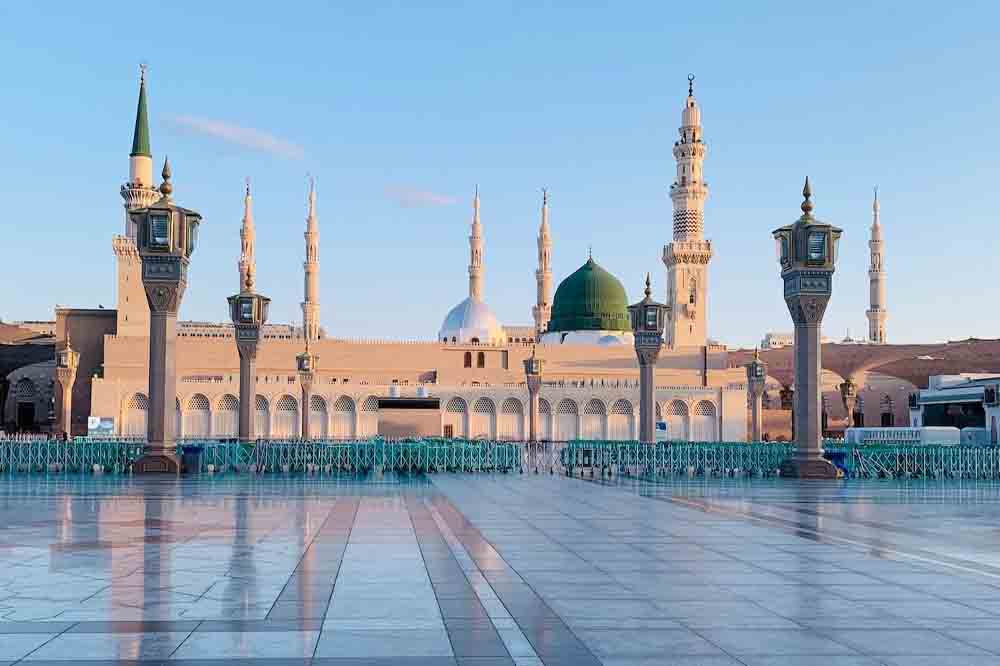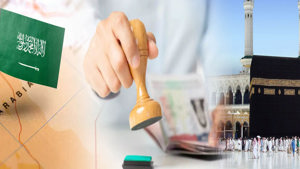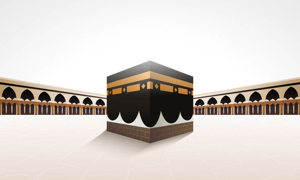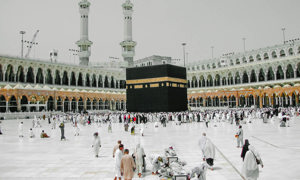Masjid Nabawi Gates: Complete Visitor Guide with Hotel Recommendations
02 Sep, 2025
Masjid an-Nabawi, also known as the Prophet’s Mosque, is one of the most revered religious landmarks in Islam. Located in Madinah, Saudi Arabia, this sacred mosque is second only to Masjid al-Haram in Makkah in terms of importance for Muslims worldwide. Every year, millions of pilgrims and visitors travel to Madinah to pray at this holy mosque, experience its serenity, and reflect upon the legacy of Prophet Muhammad (PBUH).
One of the key aspects of navigating Masjid Nabawi is understanding its gates (abwab). With more than 40 entrances, each gate has a unique historical and spiritual significance, making them essential points of reference for visitors. At the same time, having access to nearby hotels ensures comfort, convenience, and proximity for worshippers. This guide explores the gates of Masjid Nabawi and provides insights into the best nearby hotels for pilgrims and tourists.
Historical Significance of Masjid Nabawi Gates
Masjid Nabawi was originally built by Prophet Muhammad (PBUH) in 622 CE after his migration (Hijrah) from Makkah to Madinah. Over centuries, the mosque underwent numerous expansions under Islamic caliphates, sultans, and modern Saudi rulers. With each expansion, new gates were constructed to accommodate growing numbers of worshippers.
Today, these gates not only serve as entry points but also reflect Islamic history, culture, and devotion. Some gates are named after historical personalities, while others are linked to their geographical position.
Overview of the Gates of Masjid Nabawi
Currently, Masjid Nabawi has more than 41 gates distributed around the mosque. Each gate is numbered and labeled in Arabic and English to help visitors navigate.
Famous Gates of Masjid Nabawi
- Bab al-Salam (Gate of Peace): One of the most visited gates, often used by pilgrims to enter for Ziyarah (visitation).
- Bab al-Baqi: This gate leads toward the famous Jannat al-Baqi cemetery.
- Bab al-Rahmah (Gate of Mercy): A historically significant gate on the western side.
- Bab Uthman ibn Affan: Named after the third Caliph of Islam.
- Bab al-Malik Fahd: A main modern entrance with wide access and facilities.
- Bab al-Siddiq (Abu Bakr’s Gate): Named after the first Caliph and closest companion of the Prophet (PBUH).
- Bab Jibril (Gabriel’s Gate): Located near the Rawdah area, associated with Angel Jibril’s visits.
Facilities at the Gates
The gates of Masjid Nabawi are designed to ensure smooth access for millions of worshippers throughout the year, especially during peak seasons like Ramadan and Hajj. Each gate is equipped with wide entryways, digital signboards for guidance, and security screening systems to maintain safety. Visitors also benefit from wheelchair-friendly ramps, air-conditioned corridors, and separate entry points for women to ensure comfort and order. Modern features such as electronic displays, multilingual signage, and crowd management systems help pilgrims navigate the mosque with ease. Additionally, dedicated staff and volunteers are present at many gates to assist elderly visitors, families, and first-time pilgrims, making the experience both organized and spiritually fulfilling.
Table: Major Gates of Masjid Nabawi and Nearby Hotels
| Gate Name | Significance | Nearby Hotels |
|---|---|---|
| Bab al-Salam | Popular for entering Rawdah & Ziyarah | Pullman Zamzam Madinah, Anwar Al Madinah Mövenpick |
| Bab al-Baqi | Leads to Jannat al-Baqi cemetery | Dar Al Taqwa Hotel, InterContinental Dar Al Hijra |
| Bab al-Rahmah | Historical western entrance | Al Haram Hotel, Madinah Hilton |
| Bab al-Malik Fahd | Modern main entrance, wide facilities | Oberoi Madinah, Sofitel Shahd Al Madinah |
| Bab Jibril | Near Rawdah, linked to Angel Jibril | Shaza Madinah, Crowne Plaza Madinah |
| Bab al-Siddiq | Named after Abu Bakr (RA), close to Rawdah | Madinah Marriott, Millennium Madinah Airport Hotel |
Nearby Hotels for Pilgrims and Visitors
Finding accommodation near Masjid Nabawi is essential for comfort and easy access to prayers, especially for elderly pilgrims. Here are some top hotel options:
1. Pullman Zamzam Madinah
Pullman Zamzam Madinah is one of the most popular hotels located just steps away from Masjid Nabawi, making it a preferred choice for pilgrims. The hotel offers spacious rooms with modern amenities, many of which provide breathtaking views of the Prophet’s Mosque. Known for its excellent service, on-site dining options, and family-friendly facilities, Pullman Zamzam ensures both comfort and convenience for visitors seeking proximity to the holy site.
2. Anwar Al Madinah Mövenpick
Anwar Al Madinah Mövenpick is one of the largest and most luxurious hotels in Madinah, offering direct access to Masjid Nabawi for the utmost convenience of pilgrims. With its spacious rooms, diverse dining options, and a wide range of amenities, it is particularly well-suited for families and large groups. The hotel is also connected to a shopping complex, allowing guests to enjoy both spiritual and practical comforts during their stay.
3. Dar Al Taqwa Hotel
Dar Al Taqwa Hotel is a premium accommodation located directly opposite Masjid Nabawi, offering one of the closest and most convenient stays for pilgrims. Renowned for its warm hospitality and elegant interiors, the hotel provides luxurious rooms, many with direct views of the Prophet’s Mosque. Its prime location near Bab al-Baqi makes it especially popular among visitors seeking both comfort and immediate access to the holy site.
4. Sofitel Shahd Al Madinah
Sofitel Shahd Al Madinah combines French elegance with Arabian hospitality, offering a refined stay just steps away from Masjid Nabawi. The hotel features beautifully designed rooms, world-class dining, and attentive services that cater to both individual travelers and families. Its proximity to Bab al-Malik Fahd makes it a convenient choice for pilgrims who value both luxury and easy access to the holy mosque.
5. Crowne Plaza Madinah
Crowne Plaza Madinah is a modern and stylish hotel located close to Masjid Nabawi, offering a perfect blend of comfort and convenience for pilgrims. With its contemporary rooms, excellent dining options, and dedicated services, it caters to both leisure and business travelers. Its location near Bab Jibril provides easy access to the Rawdah and women’s prayer areas, making it a popular choice for international visitors seeking a peaceful and well-connected stay.
Tips for Visitors Entering Through Masjid Nabawi Gates
- Plan Entry in Advance: During peak times (Ramadan, Hajj), choose less crowded gates.
- Follow Signage: Gates are numbered and marked in multiple languages for convenience.
- Use Designated Women’s Gates: Separate entry points exist for female visitors.
- Arrive Early: For Rawdah prayers, enter via Bab al-Salam or Bab Jibril ahead of time.
- Stay Nearby: Booking hotels close to your preferred gate saves time and effort.
Spiritual Experience of Entering the Gates
For many pilgrims, entering through the gates of Masjid Nabawi is not just a physical act but a deeply spiritual moment. Bab al-Salam, in particular, holds emotional value as it leads to Rawdah, where the Prophet (PBUH) once prayed and taught his companions. Pilgrims often pause at the gates, reflecting on Islamic history and the honor of stepping into one of the holiest mosques in the world.
Future Expansions and Facilities
The Saudi government continues to expand and modernize Masjid Nabawi to cater to the growing number of visitors. Upcoming plans include:
- Smart gate systems with facial recognition.
- Improved crowd management with AI-based monitoring.
- Enhanced transport links for hotel-to-mosque access.
These developments aim to make the pilgrim experience smoother, safer, and more spiritually fulfilling.
Masjid Nabawi’s gates are not only entrances to a mosque but also portals to history, faith, and spirituality. Understanding their significance helps visitors navigate this sacred space with respect and ease. Coupled with nearby hotels offering comfort and convenience, the journey becomes truly memorable. Whether you are entering through Bab al-Salam for Ziyarah, Bab al-Baqi for cemetery visits, or Bab Jibril for Rawdah prayers, each gate has its own unique charm.
Related News
-

08 Dec, 2025 Tips to Avoid Common Visa Mistakes During Umrah
Applying for an Umrah visa can be straightforward, but pilgrims often make simple mistakes that can lead to delays or rejections. This guide provides practical tips to avoid common errors, such as incomplete documents, incorrect personal information, or missed vaccination requirements, ensuring a smooth and stress-free visa process for a spiritually fulfilling journey.
read more -

01 Dec, 2025 Umrah Visa Fees Updated: What Pilgrims Must Know
Saudi Arabia has announced updated Umrah visa fees, introducing new cost structures and requirements for pilgrims planning their spiritual journey. The revised fees aim to streamline the visa process, improve services, and ensure a smoother experience for millions of travelers heading to Makkah and Madinah. Here’s what every pilgrim needs to know before applying.
read more -

25 Nov, 2025 Get the Cheapest Umrah Tickets: Best Time to Book
Find out the best time to book your Umrah tickets and save on travel costs. By planning ahead and choosing the right season, pilgrims can secure affordable fares and enjoy a smooth, budget-friendly journey to the holy cities of Makkah and Madinah.
read more -

19 Nov, 2025 Makkah Metro Expansion to Improve Pilgrim Transport
The ongoing Makkah Metro expansion aims to significantly improve transport for millions of Umrah and Hajj pilgrims by increasing train capacity, adding new routes, and enhancing station facilities. This major upgrade will reduce travel time, ease congestion around Masjid al-Haram, and offer pilgrims a faster, safer, and more comfortable travel experience during peak seasons.
read more -

13 Nov, 2025 How Travelers Can Perform Umrah Through Saudi Arabia’s Free Transit Visa
Travelers can now perform Umrah easily using Saudi Arabia’s free transit visa, allowing a stopover of up to 96 hours. This convenient option lets passengers perform Umrah, visit Makkah and Madinah, or explore Saudi attractions during transit. The visa is issued automatically when booking eligible flights through Saudi carriers.
read more
